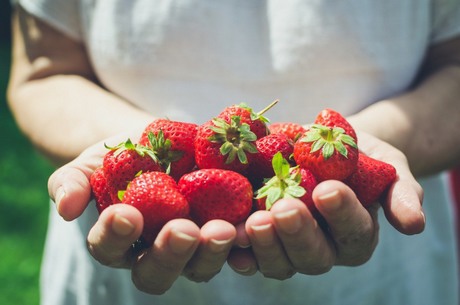Consumers are becoming more thoughtful about where their food originated from and what has happened to it throughout the process from the ground or tree to the supermarket. This is especially so since the outbreaks and recalls of various produce items over the past few years. "When you think about it, there are ample opportunities for contamination," noted John Monarch of ShipChain. "2017 and 2018 were some of the worst years for food-borne illness outbreak in history, making it abundantly clear to us that yes, it is important to know and we want to know about the origins of our fresh produce."
However, advances in technology mean that consumers now have access to a wider range of resources. According to Monarch, the introduction of connected sensors to track product information and other emerging technologies, such as blockchain, that was made popular by bitcoin for its ability to protect data will increase visibility in supply chain processes. Increased visibility leads to the quick identification of potential issues and more accountability throughout activities from farming to table.
 ShipChain's CEO John Monarch
ShipChain's CEO John Monarch
Benefits of blockchain in the food chain
Over the past few years, the food industry has been taking steps towards implementing improved-visibility initiatives. Farm-to-table and foraged foods trends are forcing food supply chains to evolve. There is a growing demand to know exactly where food is sourced. Still, Monarch says more than 75 percent of consumers do not trust the accuracy of food labels.
"This is where blockchain in the food supply chain makes a difference," he explained. "For example, a food label’s accuracy is limited by the printer and user. Even automatic systems go back to a human-touch at some point, and information can be altered after the fact to meet business needs. However, blockchain can provide a tamper-proof history of each product, which increases transparency for businesses. Businesses then pass along this information through consumer-facing platforms, further increasing visibility. Ultimately, this capability, while developed and often deployed for business-to-business transparency, can be used to give consumers peace of mind." He added that Walmart is moving to reinforce the potential of blockchain with mandated blockchain use in fresh produce.
Monarch stated that the technology generates real benefits for today's supply chains, as explained by Work Design Group, including increased visibility into all product motions from grower or farmer through resale, fast identification of issues by giving a full picture and history of a product, and improved accountability with the intended outcome being cost savings through risk reductions and high-quality data.

Insights add value
One of the benefits associated with the use of blockchain is by simplifying the maintaining of chain of custody. Companies like ShipChain say that this leads to greater benefits for shippers and allows them to concentrate more on interactions with the customer.
"Forbes reports that using blockchain eliminates much of the hassle in maintaining the chain of custody of cold-storage items," Monarch noted. "As a result, companies can spend less time worrying about where products came from and the accuracy of product information, and more time working with consumers to increase overall experience. This will naturally improve the collaboration and sense of trust among supply chain partners."
He warned however that blockchain alone does not guarantee data accuracy. If someone enters data incorrectly, all subsequent applications of data and access to the blockchain would be effectively useless. "However, automating the process and using wireless sensors and devices connected to the Internet of Things will reduce and ultimately eliminate this uncertainty. Fortunately, the use of such technologies is in the best interest of companies as they add to visibility, reduce manual work, and optimize supply chain processes."

Impact of blockchain to consumers
The impact of blockchain in the food supply chain will be felt on several fronts. Blockchain can identify potential sources of contamination quickly - in a matter of minutes instead of days or weeks. Additionally, some companies suggest that the prevalence of blockchain will reduce food-borne illness outbreaks and mitigate the number of individuals affected. In the future, a customer could scan a bag of salad and see if it’s involved in a recall or not.
"Existing food supply chains should begin the processes of implementing blockchain-based initiatives now," Monarch argues. "Failure to do so will result in a ban from major retailers, including big players like Walmart, and soon, Amazon Pantry. The opportunities for blockchain in food supply chains are clear. We need end-to-end visibility in order to finally answer the question: before you eat that, do you really know where it came from?"
For more information:
John C. Monarch
Chief Executive Officer
ShipChain
Ph: +1 (267) 439 4355
hello@shipchain.io
https://shipchain.io
